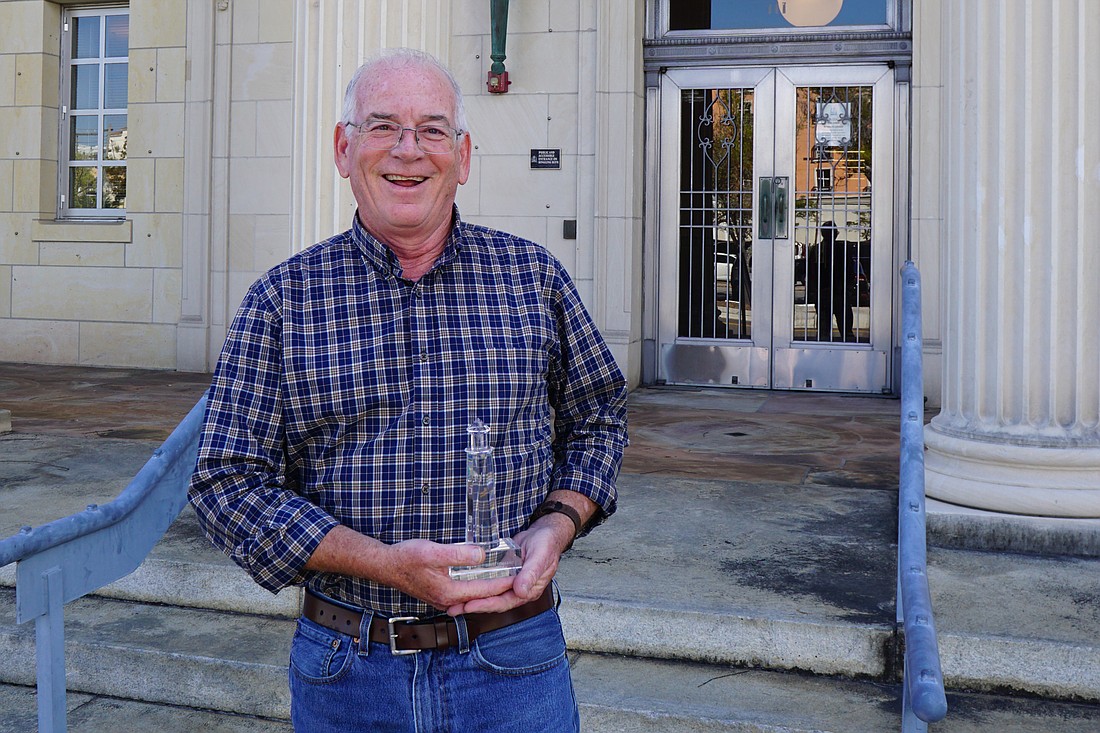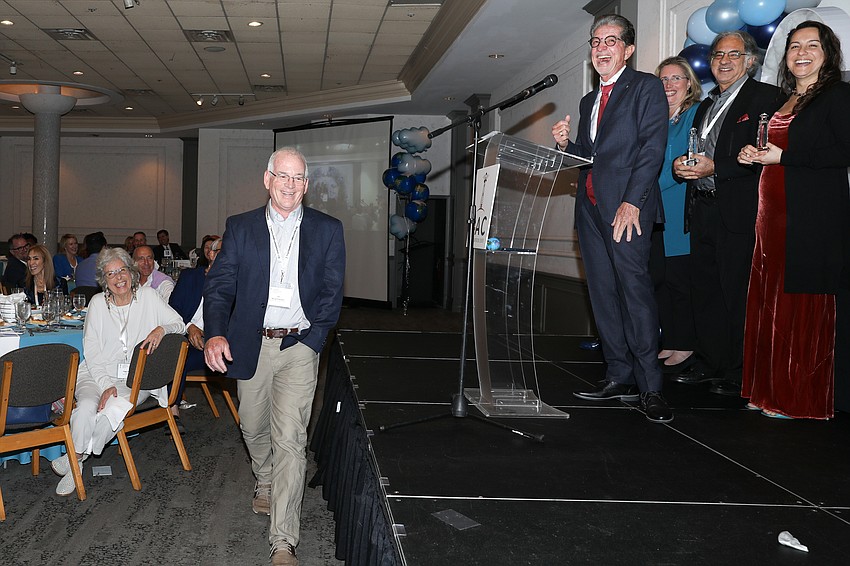- July 26, 2024
-
-
Loading

Loading

Dave Tomasko is a master of analogies.
It’s one of the characteristics that makes him a good science communicator.
Tomasko has been executive director of the Sarasota Bay Estuary Program since 2020, but has over 30 years of experience in water quality science and science-based management. His experience and ability to be a voice for what needs to be done are part of the reason why he was named a 2024 Southwest Florida Climate Champion by the Climate Adaptation Center.
On Feb. 15, the center held a recognition ceremony for the five nominated Climate Champions, dubbed by the CAC website as “Southwest Florida’s most influential and accomplished contributors to the cause of protecting our environment and our Florida way of life.” Along with Tomasko the awards recognized Jessica Meszaros, WUSF Public Media; Marshall Gobuty, Pearl Homes; Steve Newborn, WUSF Public Media; and Jennifer O. Rominiecki, President and CEO, Marie Selby Botanical Gardens.

For Tomasko, it’s not all about the recognition, though. He said he’s been delivering the messages about environmental issues the same way for decades and, while the awards are appreciated, the messages stay the same.
The Longboat Observer sat down with Tomasko for some insight into his career thus far and what he sees for the future of the area’s environment.
Sitting on my grandparents’ carpet watching Jacques Cousteau specials. I come from a family background of coal miners and steelworkers and postal workers, so my relatives were either climbing down into mines or going into steel mills.
And we would watch Jacques Cousteau and I’d be lying on the carpet watching it … and I was just entranced, I thought it was magical. From an early stage, I wanted to do something as a marine scientist or on the water.
Originally, it was the initial recovery of Sarasota Bay back in the early 1990s. Sarasota Bay in the early '90s was better than it was in the '70s and '80s.
And it was really a nationally and internationally known success story. It was neat to be around here to see the bay’s recovery.
And then we lost it.
What I’m really, really proud of, is this community investing money to bring about the second recovery. We know we can do this, but the response has to be commensurate with the magnitude of the problem.
I think in the next 10 years, the idea that we are in a changing climate is going to become clearer to more people.
Folks in Longboat Key Village said they have flooding twice a month … our water level has come up about 6 inches in the last 20 years. That (flooding) is going to happen more often.
And one of the biggest issues, frankly, is the scariness of hurricanes and tropical storms. What is very clear is that there is an increase in the frequency of powerful hurricanes. (Last summer) our water temperature in the Gulf of Mexico was higher than 90 degrees, and parts of our bay were higher than 95.
I think when people see the pictures of the almost 100 people that died when Hurricane Ian came ashore, that could easily happen to us. You’d have water completely over our barrier islands.
When I talk to younger kids, they get it. They understand that they’re being handed a world that’s different than what their parents inherited.
I think the first step is awareness. If we don’t admit we have a problem, we’re never going to fix it, and I think that younger people are more aware of it.
We need people to realize that you can turn things around, but you have to identify the problems, you have to identify the solutions, and you have to devote enough money.
You don’t convince people by yelling at them. I think we need to find the reason why people are skeptical about climate change.
Don’t exaggerate. We’re not talking about 6 feet of sea level rise, we’re talking about 9 inches in the next three decades. We think it’s better to understate than to overexaggerate.
But also, take it seriously and then try to find ways to turn your thoughts into actions. I think part of it really is to understand how serious it is.
We’re trying to get the conditions right to map our seagrasses. We know our water quality is recovering, we know our seagrasses are coming back, … we know we’re going to have a big seagrass increase, I just don't know what the number is.
That number will come out next year. The mapping takes a lot to turn out. And when that happens, then I’m going to be able to say, “see, we knew we could do it.”